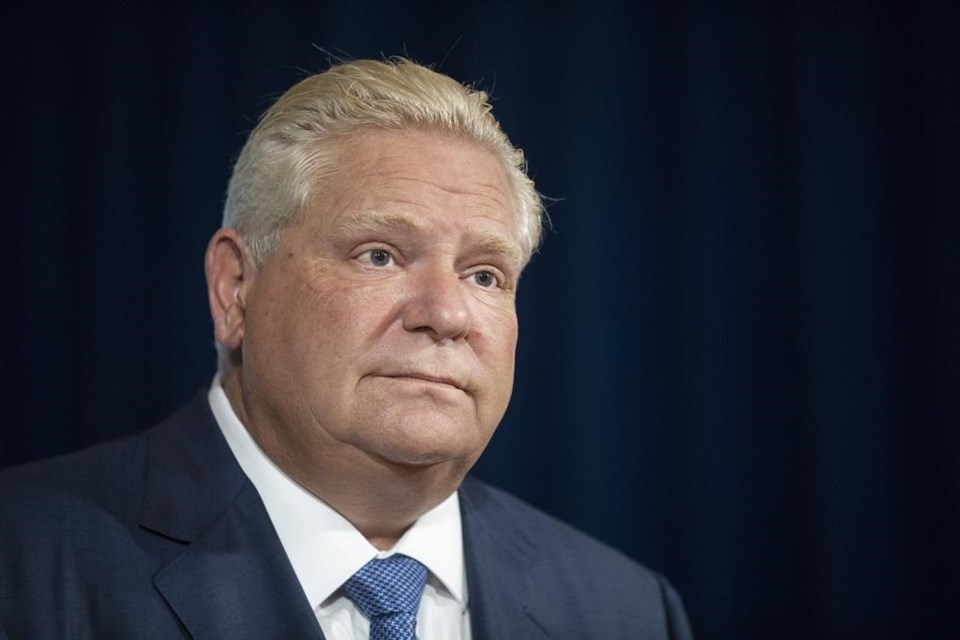TORONTO — As more Ontario regions contend with health system strain from rising COVID-19 infections, Premier Doug Ford said Tuesday that his government will keep relying on local medical officers of health to reinstate pandemic restrictions.
Health units covering the Sudbury and Algoma regions in northern Ontario have reinstated measures including business capacity limits in light of spiking cases. Ford's Progressive Conservative government lifted those last month.
Ford said at a Tuesday news conference that the local approach makes sense because the risk is lower than in previous waves as more people are vaccinated.
He said the government decided on its plan after consulting with the province's top doctor and medical officers for Ontario's 34 health units.
"They felt that was the right plan to move forward, to have the flexibility," Ford said in Toronto on Tuesday.
"We truly believe that the plan is the right plan."
He said his government would also keep heeding the advice of the province's top doctor.
Algoma Public Health noted particular concern in the northwestern border city of Sault Ste. Marie, Ont., on Monday, where the local hospital said the recent admissions spike could lead to cancelled surgeries and other issues.
Southwestern Public Health's medical officer said Tuesday that the health unit was considering further pandemic measures, likely to be introduced next week, to alleviate pressure on the local health system.
"In the meantime, it is imperative that all of you continue to wear a face covering properly, limit your social circle, avoid crowds, close contact and enclosed spaces," Dr. Joyce Lock said.
She did not offer specifics about the measures to come, but said the health unit was looking at changes to capacity limits.
Lock also noted that the public health unit's weekly incident rate per 100,000 is 68.1 and weekly per cent positivity is 5.1.
"These are both high and they are some of the highest numbers in the province," she said.
The health unit covering Kingston, Ont., declared community spread on Monday -- meaning COVID-19 cases and clusters have popped up in the community that can't be connected to known sources of infection -- and asked everyone to take caution.
Top public health doctor Dr. Piotr Oglaza urged all residents to monitor for symptoms, and get tested and isolate if they appear.
“Unfortunately, our case investigations show that individuals are not always following public health guidance and are ignoring symptoms and delaying testing," Oglaza said in a statement.
"If you feel sick, or even if you just have mild symptoms, make the responsible choice and get tested to protect yourself and your community."
Ontario reported 481 COVID-19 cases and one more death from the virus on Tuesday as the seven-day average for daily infections climbed to 579, up from 492 a week ago.
Modelling released last week from the group of scientists advising the province on the pandemic found that the recent growth in cases was likely caused in part by lifted capacity limits and more indoor gatherings.
Experts with the COVID-19 Science Advisory Table said the case growth will likely continue along with intensive care admissions, but it's unclear how steep the rise will be.
This report by The Canadian Press was first published Nov. 16, 2021.
- With files from Noushin Ziafati.
Holly McKenzie-Sutter, The Canadian Press

